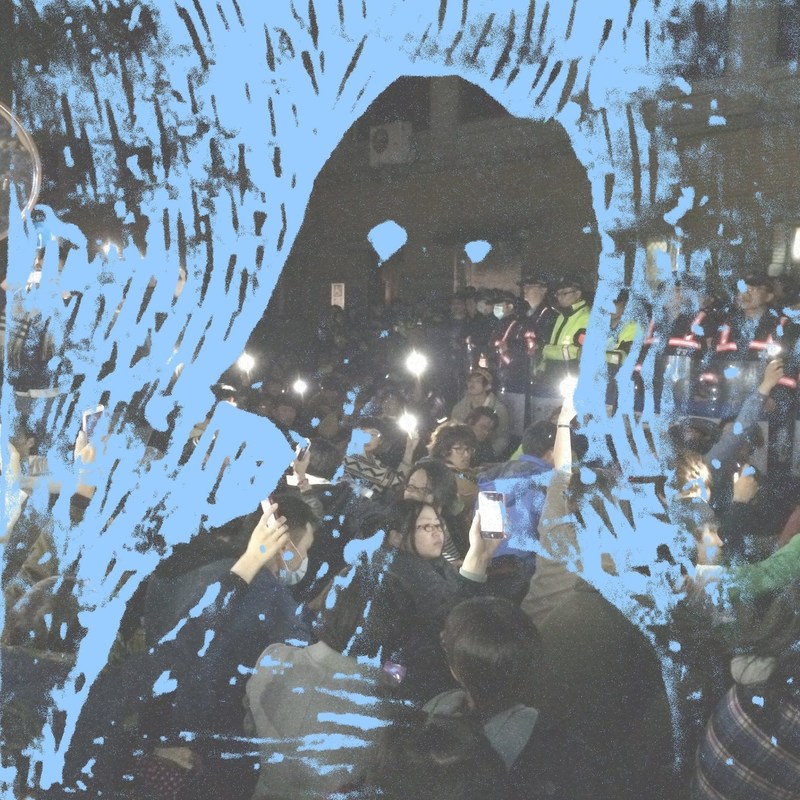Join artists Lee Tzu-tung and Engelhardt, and curators Zoe Butt and Asia Bazdyrieve for a conversation about their experiences making and presenting work in different political contexts and across national and community spaces.
What is the role of the artist or exhibition maker in these turbulent times, and how does personal displacement shape the creation of art?
These practitioners with Ukraine, Taiwan, China, Vietnam, and Russia experience each brings their own unique perspective on what constitutes an audience, the boundaries of a project, the role of digital media, online and in-person community, and what they hope art can do in the world.
Conversation moderated by Johanna S. Ransmeier, associate professor department of history.
Lunch will be served to those who register.
For questions and for accommodations to attend the event, please contact cliffchan@uchicago.edu.
ROUNDTABLE PARTICIPANTS

Tzu-Tung Lee is a curator and a political artist from Taiwan. Combining anthropological field research and political activism, zir projects explore how one survives and negotiates autonomy with multiple forms of political, gender, and illness identities. Surfing between video, installation, web art, and performance art forms, Tzu-Tung often introduces participatory methods in zir works and invites participants as collective creators to test and decolonize the contemporary form of art, technology, and authorities.
Tzu-Tung has an MS from the Massachusetts Institute of Technology (MIT), an MFA with a full merit scholarship from the School of Art Institute of Chicago, and a BS from the National Taiwan University, Agricultural Economics Department. Zir's artworks have been exhibited globally, including National Taiwan Museum of Fine Arts, MOCA Taipei (TW), MIT Museum, Cuchifritos Gallery, Tom Robbinson Gallery (US), Lisbon University (PT), ArtScape (CA), transmediale (DE), Mi Hak Gwan (SK), Hyundai Motor Studio (CN) among others. Tzu-Tung is also an organizer for several of Taiwan’s Indigenous and gender movements, the founder of an artist-technologist collaborative NPO, and the curator of art and anthropology exhibitions. Website: www.tzutung.com

Anna Engelhardt is an alias of a research-based media artist and writer. Her practice examines war as a technology, looking into the hardware and software behind Russian invasions. Interested in topics from military cybernetics to cyber warfare, she conducts investigations that take on multiple forms of media, including videos, software, and hardware interfaces. In tandem, she pursues writing, lecturing, and publishing to promote decolonial approaches to cyberspace and to situate digital conflicts within a broader colonial matrix. Her works and activities have been featured at transmediale festival, Venice Biennale Architettura, Ars Electronica, Digital War journal, Funambulist magazine, and Kyiv Biennial.

Zoe Butt is a curator and writer. In 2022, she founded ‘in-tangible institute,’ a curatorial platform nurturing locally-responsive infrastructure for the arts across Southeast Asia. Possessing an extensive exhibition, publishing, and public-speaking history globally, leading artist-driven initiatives for over 15 years in China and Vietnam, Zoe earned her ‘PhD by Published Works’ from the University of Westminster, London, and is currently Lead Advisor (Southeast Asia and Oceania), Kadist Art Foundation, Paris/San Francisco. Zoe is a Museum of Modern Art International Curatorial Fellow, New York; a member of Asia Society’s ‘Asia 21’ initiative, New York; and the Asian Art Council, Solomon R. Guggenheim Museum, New York. She lives and works between Chiang Mai, Thailand, and Ho Chi Minh City, Vietnam.

Asia Bazdyrieve is an art historian whose work focuses on hybrid European-Soviet modernity and its ideological and material implications in spaces, bodies, and lands. Bazdyrieva co-authored Geocinema, a collaborative project exploring infrastructures of earth sensing as a form of cinema, which has been nominated for the Schering Stiftung Award for Artistic Research (2020) and the Golden Key Prize at the Kassel Dokfest (2021). She is currently an associate member of Critical Media Lab Basel and a resident of transmediale.

Johanna S. Ransmeier is a social and legal historian of modern China. She studies the surprising ways crime and the law intersect with family life in China. Her first book, Sold People: Traffickers and Family Life in North China (Harvard University Press, 2017), exposed the transactional foundations of traditional family structures and the role of human trafficking in late Qing and Republican China. She is a fellow with the National Committee on US-China Relations Public Intellectuals Program (Cohort V) and was a visiting research fellow at the Institute of Modern History at Academia Sinica in Taiwan. She currently serves as co-chair of the Pozen Family Center for Human Rights faculty board.
